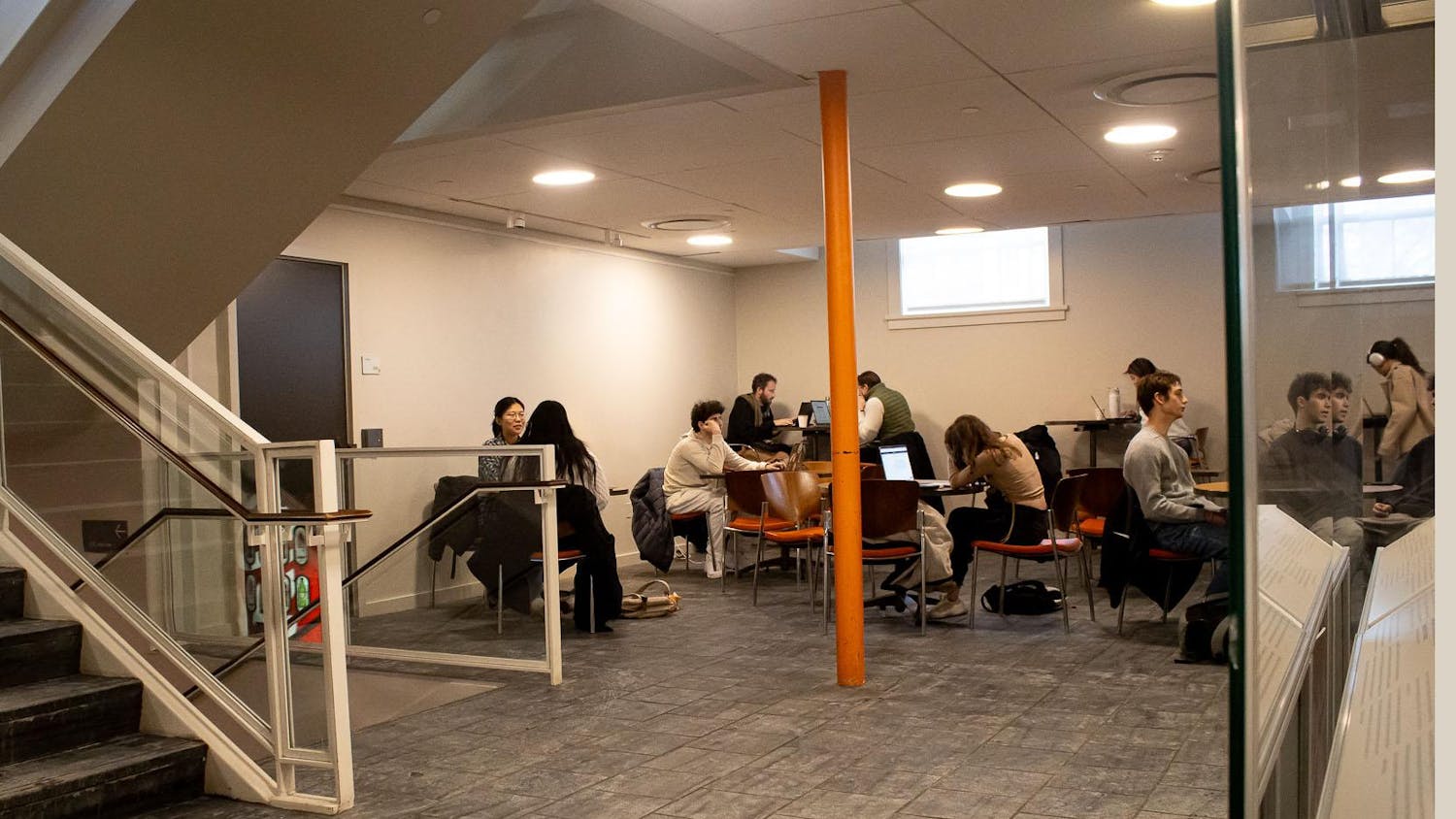International undergraduates studying in STEM fields came together to reflect on their experiences interning in the United States in a discussion on Wednesday afternoon titled “International Student Internships in Focus: STEM Panel.” The panel, part of an ongoing March 2022 series, will be followed by another discussion on humanities internships for international undergraduates March 24.
“The goal of this series is to help demystify and facilitate an exploratory conversation about effective internship search strategies,” Kelsey Trimm, international students program coordinator, wrote in an email to The Herald. The series aims to legitimize “the diverse knowledge and experiences international students bring to their college and career pathways.”
Held in the Campus Center’s Petteruti Lounge, the event was moderated by Trimm and featured four international undergraduate panelists: Prince Ncube ’22, Ingrid Huang ’22, Minsik Cho ’22 and Ritiika Avarrsekar ’23.
The discussion began with each of the panelists talking about their most formative internship experiences. Huang spoke about her interests in marketing, communications and public relations and how her role as a public relations fellow at Hill+Knowlton, an international public relations consulting firm, guided her to her ultimate career path.
Ncube’s internship journey was also one of self-discovery. After a summer of working in biology-related research, Ncube realized that the career path wasn’t a good fit for him. The next summer, he attended the BrownConnect Summer Institute and discovered his passion for consulting.
For Avarrsekar, her summer experience as an investor relations intern at MSD Partners not only served as a “stepping stone into … investment banking,” but also made her realize the importance of an inclusive work environment.
“The best part of the internship for me … (was that) everyone in my group treated me with so much respect,” she said. “It really set the bar.”
Cho, who said he has strong interests in computational chemistry, highlighted the importance of research experiences “building on each other” in academia. He also spoke about the ease with which academic summer experiences related to his concentration and the important role his concentration advisor played in helping him find jobs in research.
For international students on an F-1 Visa, summer internships must relate to their concentration, according to Trimm. University concentrations provided the panelists with differing levels of preparation for their internship roles.
Economics concentrators Avarrsekar and Huang both felt that while their classes helped familiarize them with daily jargon and provided a good foundation, their main learning came on the job.
“My first internship ever was as a data analyst at Kantar Consulting. I did a lot of brand evaluations for companies … I thought I would go in knowing more,” Huang said. “But having that internship and coming back into my concentration, I knew how to piece together my academic journey after my career journey.”
Ncube echoed these sentiments, adding that in “a lot of jobs and internships (companies) are not looking for you to walk through the door knowing exactly what to do.” But Ncube was surprised by the ways the scientific concepts introduced to him through his biomedical engineering concentration eased his understanding of industry applications in healthcare consulting.
When finding STEM internships, Cho emphasized the need to “ask your professors, ask your advisors — that’s the best bet.” He also recommended the Google Summer of Code Program, where students can match with STEM projects in their areas of interest.
For industry positions, Avarrsekar, Ncube and Huang all agreed on the importance of bigger platforms such as Handshake, BrownConnect and LinkedIn in finding opportunities. But they also spoke about utilizing lesser-known channels.
Avarrsekar found her sophomore year summer internship in a University student organization’s newsletter. “Always keep your eyes and ears open,” she said. “You don’t know where (you) or who you’re speaking to could get you a job.”
“Both of my prior internships I got from cold-texting someone on LinkedIn,” Huang added. Huang said she connected with alums during her job search process, encouraging female students to utilize the Women’s Launch Pad to get connected with an alumni mentor.
Trimm urged international students to use their unique positions as an asset when networking by filtering by “international student experience” on BrownConnect and searching by country on Linkedin.
“International alumni, in my experience … want to connect with current international undergrads,” she said.
Throughout the course of the discussion, the panelists went over the recruiting cycles for different industries and the different forms of work authorization that international students need to have to work in the United States. These authorizations include the Curricular Practice Training, Optional Practice Training and STEM-Optional Practice Training for off-campus employment, as well as a Social Security Number for on-campus jobs. The University offers many resources to aid with these applications, Avarrsekar said.
For international undergraduates hoping to work in the United States, their options are often limited by employers who are unwilling or unable to sponsor work visas, according to Ncube. The panelists shared their experiences navigating these issues — including their use of government databases that list companies which sponsor a high number of international applications.
“Finding a job is a full-time job,” Huang said. She advised students to portion out their time and allocate certain days for rest and others for networking and recruitment.
When asked about personal reasons for choosing to explore work opportunities in the United States, Avarrsekar said that while her home country offers internship programs, “they definitely aren’t as structured as those in the US.”
“Your location of internship does not matter as much as what you do with it,” she said.
“I would really emphasize (that it is) the transferable skills and the experience in an industry or field,” Trimm said, “and how you represent it to employers (in the US) that really matter (when applying to positions).”





